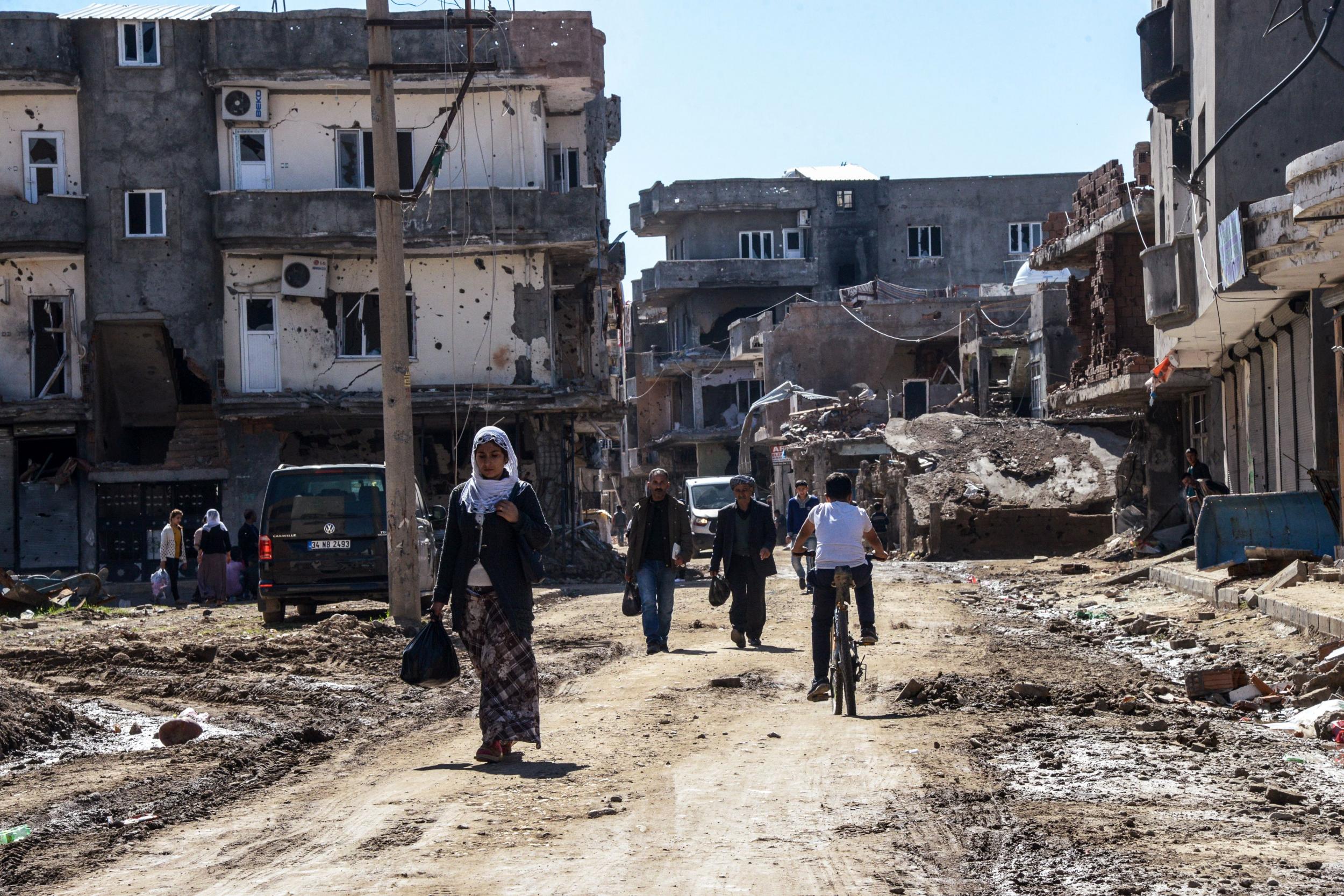Turkey blocking independent investigations into civilian killings, Human Rights Watch warns
The Turkish government is preventing non-governmental organisations, journalists, and lawyers from scrutinising operations, Human Rights Watch warns

Your support helps us to tell the story
From reproductive rights to climate change to Big Tech, The Independent is on the ground when the story is developing. Whether it's investigating the financials of Elon Musk's pro-Trump PAC or producing our latest documentary, 'The A Word', which shines a light on the American women fighting for reproductive rights, we know how important it is to parse out the facts from the messaging.
At such a critical moment in US history, we need reporters on the ground. Your donation allows us to keep sending journalists to speak to both sides of the story.
The Independent is trusted by Americans across the entire political spectrum. And unlike many other quality news outlets, we choose not to lock Americans out of our reporting and analysis with paywalls. We believe quality journalism should be available to everyone, paid for by those who can afford it.
Your support makes all the difference.The Turkish authorities are blocking access to independent investigations into alleged mass abuses against civilians, Human Rights Watch (HRW) has claimed.
The government has reportedly imposed round-the-clock curfews on 22 towns and cities across southeast Turkey, banning all movement without permission.
The curfews also prevent non-governmental organisations, journalists, and lawyers from scrutinising operations, it is claimed.
“The Turkish government’s effective blockade of areas of the southeast fuels concerns of a major cover-up,” said Emma Sinclair-Webb, senior Turkey researcher at HRW.
“The Turkish government should give the UN and non-governmental groups immediate access to the area to document what’s going on there.”
Violence and armed clashes in the southeast region have escalated since a peace process to end the decades-long conflict between the Turkish state and the armed Kurdistan Workers’ Party (PKK) broke down in July 2015.
At least 338 civilians are known to have been killed in places where security forces and the Civil Protection Units (YPS), the armed group linked to the PKK, have clashed.
More than 355,000 people have also been temporarily displaced to other nearby towns and villages or to other regions of Turkey.
Before HRW was blocked from interviewing families of victims, the organisation had documented 16 deaths that occurred during curfew and security operations, as well as widespread property destruction.
Interviews with families revealed that people's homes and property had been damaged during the clashes and in some areas completely demolished.
HRW assessed the scale and extent of demolition in Cizre, one of nine towns most severely hit, using satellite imagery recorded between February and June 2016.
Two distinct demolition zones were identified, measuring approximately 95,000 square meters in total area.
The available information indicates security forces surrounded three buildings and deliberately and unjustifiably killed about 130 people – some of whom were unarmed civilians and injured combatants.
Mrs Sinclair-Webb added: “Amid a mounting death toll and a spiraling conflict, real accountability in Turkey’s southeast is crucial.
“Prosecutors should thoroughly and effectively investigate all allegations of abuse by state forces and armed groups, and no legal or extra-legal measures should be taken to try to ensure impunity for personnel responsible for these crimes.”
The United Nations has urged Turkey to allow investigators to probe allegations of abuse by security forces in their campaign against the PKK.
The Turkish government's operation against the terrorist organisation has been fiercely criticised by European leaders and international human rights groups.
Join our commenting forum
Join thought-provoking conversations, follow other Independent readers and see their replies
Comments